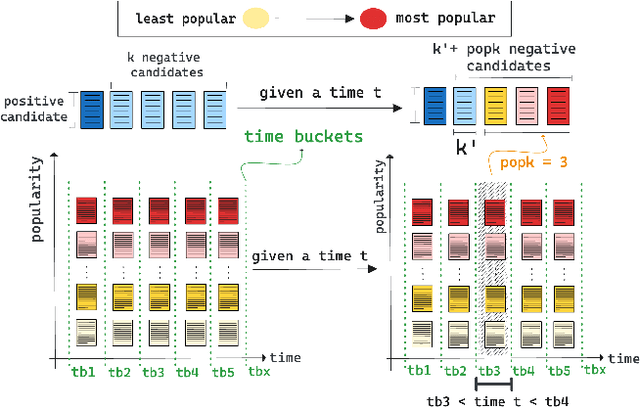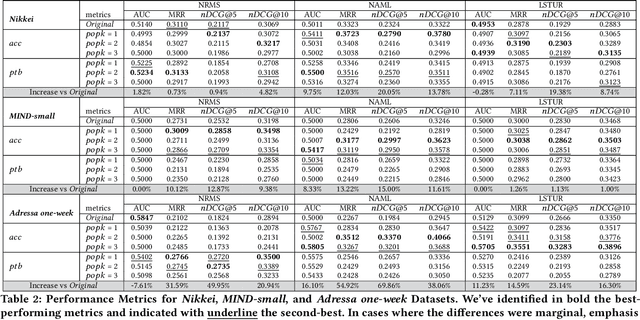Popular News Always Compete for the User's Attention! POPK: Mitigating Popularity Bias via a Temporal-Counterfactual
Paper and Code
Jul 13, 2024



In news recommendation systems, reducing popularity bias is essential for delivering accurate and diverse recommendations. This paper presents POPK, a new method that uses temporal-counterfactual analysis to mitigate the influence of popular news articles. By asking, "What if, at a given time $t$, a set of popular news articles were competing for the user's attention to be clicked?", POPK aims to improve recommendation accuracy and diversity. We tested POPK on three different language datasets (Japanese, English, and Norwegian) and found that it successfully enhances traditional methods. POPK offers flexibility for customization to enhance either accuracy or diversity, alongside providing distinct ways of measuring popularity. We argue that popular news articles always compete for attention, even if they are not explicitly present in the user's impression list. POPK systematically eliminates the implicit influence of popular news articles during each training step. We combine counterfactual reasoning with a temporal approach to adjust the negative sample space, refining understanding of user interests. Our findings underscore how POPK effectively enhances the accuracy and diversity of recommended articles while also tailoring the approach to specific needs.
 Add to Chrome
Add to Chrome Add to Firefox
Add to Firefox Add to Edge
Add to Edge